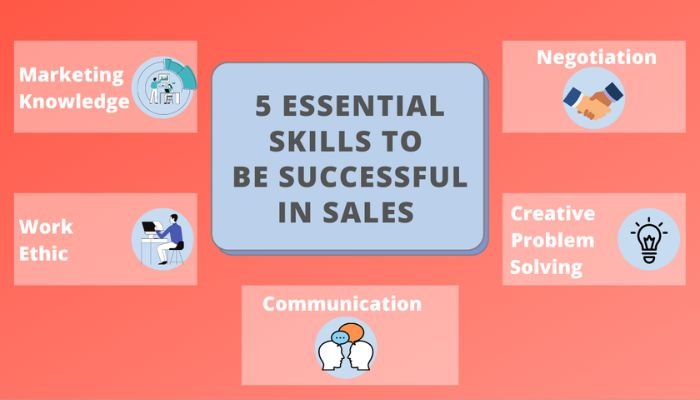Effective Recruiting Strategies in a Competitive Sales Labor Market

Creating an impactful salesforce in the current competitive labor market is a key challenge for businesses. Organizations need to develop creative and effective recruiting strategies to remain competitive and draw high-value talent from an increasingly limited pool of sales professionals.
Within this article, we will explore vital tactics that employers can use to strengthen their recruitment efforts, including understanding the challenges and opportunities present in the market, exploring how technology can offer hiring advantages and effectively leveraging additional resources such as local alumni groups or industry-specific associations.
Understanding the Sales Labor Market
Overview of the competitive landscape
The competitive landscape of the sales labor market is constantly evolving- businesses must keep up in order to begin or continue their recruiting efforts.
With relentless competition, widespread advancements in technology, and the increased prevalence of remote work, organizations must identify key trends that could have an impact on the talent acquisition process.
It’s important for businesses to ensure that prospective candidates feel valued through every step of the recruitment journey — especially since top performance often requires specialized skills that may not be available with local prospects.
Understanding this complex business environment means assessing where areas of potential growth exist and anticipating which customer needs will require strategic personnel shifts can carry great importance for ongoing success within a tight labor market.
Key challenges faced by employers in hiring sales professionals
Understanding the Sales Labor Market is a key part of executing efficient and fruitful recruiting strategies.
Employers struggle with finding qualified sales professionals who align with their organization’s mission, objectives and goals in today’s competitive market. Identifying these individuals can take a great deal of time which drives recruitment costs up significantly.
The continuously changing candidate preferences present another challenge; as companies need to focus on addressing applicants’ evolving desires such as flexible work timing with job security or competitive salaries versus incentive packages.
Identifying the Ideal Candidate Profile
Essential skills and attributes for sales roles

When identifying the ideal candidate profile for a sales role, it is important to ensure the prospective hire possesses both the essential skills suitable for success and attributes congruent with that of an excellent leader.
Key skills to evaluate include relationship building, negotiation abilities, problem-solving tactics, and customer service orientation with a focus on providing quality results that align with organizational goals.
With regards to personal attributes, one should look out for successful applicants who demonstrate an authority mentality alongside advanced persuasiveness, and courage mixing game-changing ideology/tech trends together in ways that incite value addition.
Organizations must take muscular and measurable steps by proactively selecting their recruitment methods based upon candidates best matching these defined criteria whilst showcasing their credibility via employer branding too.
Tailoring the candidate profile to match specific organizational needs
When identifying the ideal sales job candidate, employers must tailor the qualifications to their specific organizational needs.
This tailored strategy equips employers with the best shot at selecting a top performer for open roles rather than choosing an ill-suited ‘generic’ résumé.
To ensure each sales professional is supporting customer relations in optimal ways, businesses should create detailed performance expectations and persona outlines all applicants must meet.
Those considered for hire should reflect those values and be thoroughly assessed against expected parameters such as time management proficiency complemented by a friendly demeanor or negotiation aptitude married to high standards of work ethic.
Employers need to make sure every element jives symbiotically within its existing corporate environment before someone is brought on board.
Leveraging Technology and Social Media
Utilizing online platforms for job postings

When identifying the ideal sales job candidate, employers must tailor the qualifications to their specific organizational needs. This tailored strategy equips employers with the best shot at selecting a top performer for open roles rather than choosing an ill-suited ‘generic’ résumé.
To ensure each sales professional is supporting customer relations in optimal ways, businesses should create detailed performance expectations and persona outlines all applicants must meet.
Those considered for hire should reflect those values and be thoroughly assessed against expected parameters such as time management proficiency complemented by a friendly demeanor or negotiation aptitude married to high standards of work ethic.
Employers need to make sure every element jives symbiotically within its existing corporate environment before someone is brought on board.
Leveraging social media to attract and engage potential candidates
Leveraging technology and social media can be a powerful recruitment strategy to attract potential candidates for sales roles.
Social media platforms are ideal places to target and engage with job seekers from various backgrounds, enabling employers to identify suitable candidates quickly and broadening their reach well beyond conventional advertising methods.
Companies can brainstorm effective marketing campaigns through the use of video content, content marketing, and influencer initiatives and promote available positions through these channels in order to attract maximum attention from the right audience.
Moreover, they also have access to vast amounts of collected data that enables them gain valuable insights about candidate behavior-related topics such as industry trends, skill gaps, engagement levels, and more; all of which someone explores further in their recruitment process.
Employee Referral Programs
Encouraging current employees to refer suitable candidates
Employee referral programs are an effective way to meet recruiting goals in a competitive environment. Companies can leverage the existing networks of their employees by encouraging them to refer suitable candidates.
This can help employers save time and resources that would otherwise have been spent on sourcing and screening external applicants.
Additionally, employee referrals often produce higher quality job candidates who will generally be better suited for the role due to prior knowledge of the company culture and expectations both from current staff members and those they refer.
Highlighting the benefits and incentives of referral programs
Employee referral programs are a great way to quickly fill sales roles in an efficient manner by leveraging the network of existing staff. Offering incentives is key to attract quality referrals, and these rewards can range from cash bonuses to gift cards and extra holidays.
Benefits should be communicated clearly so current employees know what’s at stake when referring a suitable candidate.
Talent acquisition teams also need to recognize using straightforward topics like company loyalty, corporate culture value, challenging work opportunities, financial incentives etc., which will ensure that referral program participants are motivated for guaranteed success.
Additionally, rewarding both the referrers as well as initially referred colleagues improves workforce trust between departments while facilitating more dialogue on suitable job matches.
Building a Strong Employer Brand
Creating a positive company image in the market
Creating a positive company image in the market is key to building a strong employer brand and succeeding at recruiting top sales talent in a competitive labor market.
Employers must showcase their unique qualities and demonstrate how they stand out relative to their competitors, including providing evidence that the team culture is motivating and rewarding.
To create an effective message, it’s important for companies to understand the problem facing sales reps today and identify what value working with them could bring.
Employers can present evidence about career development opportunities, pay scales that are above industry average or internal policies that make accepting new challenges at work easier for individuals.
Showcasing the company’s culture, values, and growth opportunities
In this highly competitive market employers must recognize the value and need of a powerful employer brand. This includes showcasing aspects such as your company’s culture, values, and potential growth opportunities to potential candidates.
An attractive employer brand will not only convince current employees of their loyalty but also attract great talent into applying with your business in order to contribute to its success.
You should accurately represent yourself through organic marketing efforts such as recruiting webpages that contain real-life stories from employees to capture what daily life is like at today’s modern workforce.
Also, promote amazing motives and fulfilled visions for engaging new members who seek mission alignment when searching for a career home base.
Offering Competitive Compensation and Incentives
Designing attractive salary packages and commissions
When recruiting sales professionals in the competitive labor market, offering a competitive compensation and incentive package can help attract high-quality candidates. Designing attractive salary packages and commissions is important for not only attracting strong applicants but also keeping them in the role long term.
Companies need to research the current market rate ranges when determining pay, while considering industry standards and organizational objectives too.
In addition to salaries, companies often structure their commission plans to tie into career development goals for giving employees added incentives throughout employment cycles which further reinforce employee motivation as well as performance outcomes that benefit the organization itself.
Introducing performance-based incentives to attract top talent
Performance-based incentives can be an effective way of attracting top talent in a competitive sales labor market. Introducing rewarding and achievable metrics gives potential candidates the opportunity to earn rewards. This is often more conducive towards opportunities compared to fixed salaries since it turns the job into a personal challenge for them.
Moreover, offering additional financial rewards based on their performances motivates impactful employees which helps to raise productivity levels across teams. It also serves as a great incentive tool in retaining valuable current employees while making sure that they are eligible for extra payouts if they hit their targets and KPIs successfully.
Furthermore, combining monetary with non-money benefits can go a long way in inspiring top performance among recruits which presents itself as an indispensable recruiting strategy for employers looking to stand out from the competition.
Streamlining the Recruitment Process

Removing unnecessary steps to expedite hiring
In today’s competitive sales labor market, businesses need to act swiftly if they are to maximize success and gain an edge over competitors.
Removing unnecessary steps from the recruitment process is a great way to expedite hiring without compromising results or increasing costs. Companies should focus on ensuring their application review process only includes essential elements that add value.
Unnecessary interviews, surveys, tests and paperwork can contribute too much administrative burden and should be avoided as far as possible.
Eliminating superfluous steps allows for faster reviews of applicants while also reducing the time-to-hire ratios which minimizes disruption caused by unfilled positions in business operations.
Ensuring a smooth and efficient candidate experience
Streamlining the recruitment process is essential in recruiting the best sales personnel in a tight labor market. Employers must ensure an efficient and streamlined candidate experience by minimizing unnecessary steps or tasks during the hiring process.
Regularly evaluating and removing bottlenecks is important to maximize user experience with event-based forms, automated scheduling tools for interviews, and direct feedback channels throughout the hiring cycle plus offering transparency of key metrics are ways companies can improve candidate engagement and desire to join that employer’s organization.
Continuous Talent Pipeline Development
Maintaining relationships with potential candidates for future openings
Maintaining relationships with potential candidates is an important strategy to continuously develop a talent pipeline for recruiting in a tight sales labor market.
Connecting and engaging skillful professionals long before there is any defined career opportunity has become increasingly vital from a recruitment perspective.
Companies should continue to engage with such potential prospects by sending relevant industry news or company updates, while proactively conducting periodic follow-ups based on the progress of each individual’s career experience until there is job opening available.
This will help keep the applicants connected enough so that they smoothly transition into applications when needed.
Nurturing talent through regular communication and engagement
Maintaining contact with potential future employees is a critical aspect of successful recruitment in today’s competitive sales labor market.
Regular communication and engagement help build relationships with applicants as well as keep the company top-of-mind with them over time.
Corporate values should be kept at the center of potential interactions to ensure recruiters stay true to themselves while accessing the talent pipeline for current and future positions.
Conclusion
Recruiting in today’s tight sales labor market can be a complex and difficult endeavor, but with the right strategies can become more effective and manageable.
Companies must invest effort into understanding the competitive landscape, crafting an ideal candidate profile that matches their specific needs, and utilizing technology and social media for job postings. It also helps when they start launching referral programs to onboard targeted candidates swiftly, developing a strong employer brand image, and continuous talent pipeline development as recruiting efforts are ongoing.
With all this taken into account companies should have success in ensuring a successful hiring operation amidst of this challenging environment.
- Mastering Internal Mobility: A Comprehensive Guide to Success - August 10, 2023
- Effective Recruiting Strategies in a Competitive Sales Labor Market - July 27, 2023
- 6 Essential Factors to Attract Top Talent - July 19, 2023
